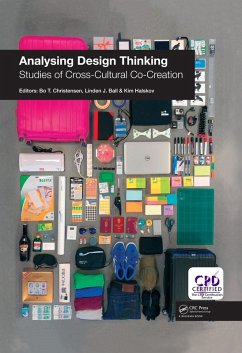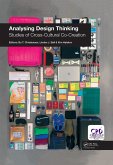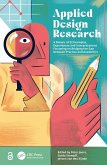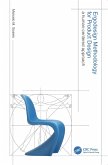The scientific analysis of design thinking is of considerable interest to academics and design practitioners across many disciplines. Although a growing corpus of studies are concerned with how designers think when generating innovative products, less attention has been given to design thinking that arises with less tangible soft deliverables (e.g., concepts and user-insights). This book presents papers from internationally-leading academics with an interest in design thinking who offer detailed, multi-method analyses that provide unique insights into how a Scandinavian design team tackled a design task within the automotive industry, where cross-cultural co-creation played a central role.
Dieser Download kann aus rechtlichen Gründen nur mit Rechnungsadresse in A, B, BG, CY, CZ, D, DK, EW, E, FIN, F, GR, HR, H, IRL, I, LT, L, LR, M, NL, PL, P, R, S, SLO, SK ausgeliefert werden.









